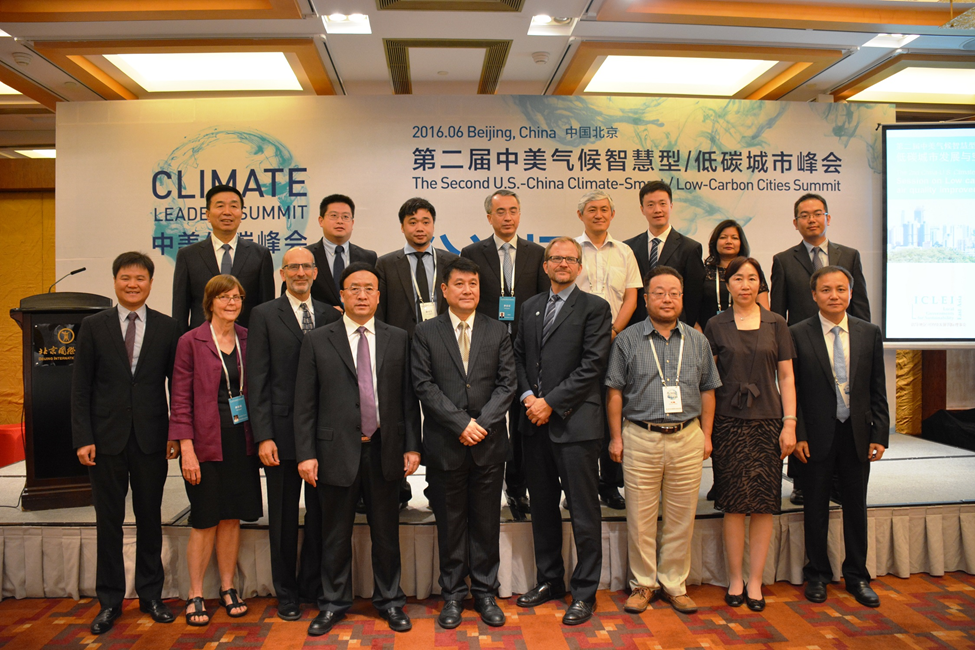


To deepen the cooperation and exchange experience & technology between Chinese and US cities, on 8 June 2016, ICCS (secretariat of Clean Air Alliance of China) , co-organized a sub-forum with ICLEI, Energy Foundation China (EFC), and NDRC Energy Research Institute on air quality improvement and low-carbon development during the 2nd US-China Climate Leaders Summit held in Beijing, China.
Mayors and governmental representatives from Beijing, Guangzhou, Lanzhou, Suining, Yan‘an, Evanston, California and Los Angeles shared experience and challenges in low-carbon development and air quality improvement. Experts, researchers and business leaders from Energy Foundation China,Chinese Academy for Environmental Planning, Lawrence Berkeley Laboratory, College of the Environment in Tsinghua University, Children’s Investment Fund Foundation and Power Flame Incorporated also presented their research results, initiatives and relevant programs, talked about the measures, policy, technology and strategies in helping cities to enhance urban air quality and low-carbon development.
In the summit, Xie Hongxing, director of ICCS, emphasized that the cities’ clean air paths will also be the ways of low-carbon development. ICCS has been focusing on helping Chinese government to address the co-benefits of air pollution control and Greenhouse gases (GHGs) emission reduction. In collaboration with Energy Foundation China, Tsinghua University, NDRC Energy Research Institute and other research institutions, ICCS published a series of reports to promote co-control of air pollutants and GHGs (CAAC Reports). ICCS also developed co-control measures database and co-benefits analysis guidance and launched a series of co-control local pilots in Beijing, Tianjin, Shanxi, Shenzhen, Changzhou, and Xinzhou to apply these co-control tools to support local provinces and cities to maximize the co-benefits.
